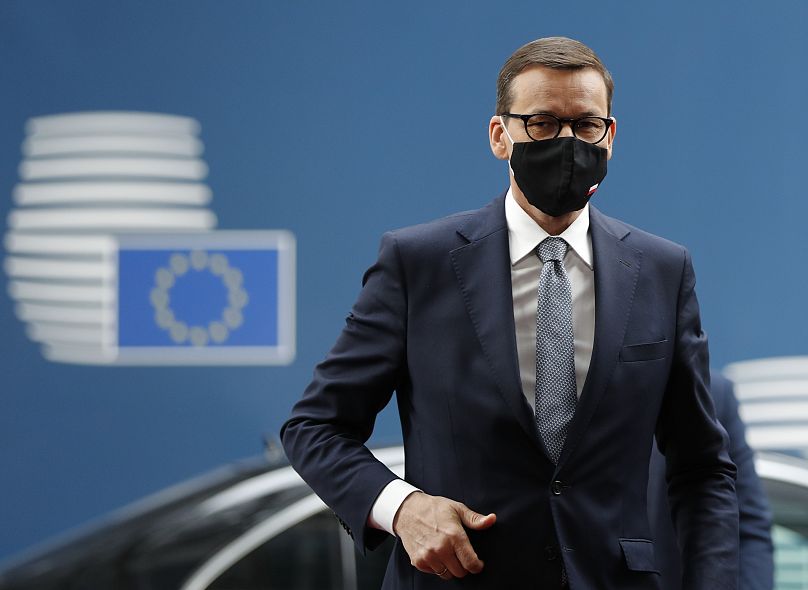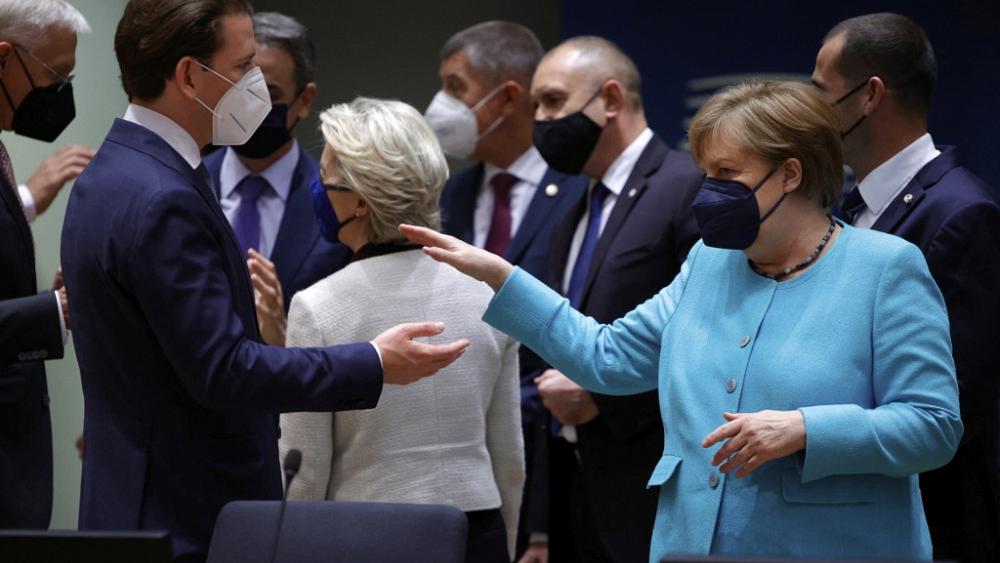European Union member states are at loggerheads over how to approach relations with Russia, as the bloc’s 27 leaders meet in Brussels.
The French and German governments want to restart summit meetings with Vladimir Putin, but other EU countries disagree with this strategy and want to take a tougher line towards Moscow.
Europe’s two largest countries see this model of dialogue as the way forward with Russia.
“It is not enough that the American president speaks to the Russian president. The European Union must also create different formats of discussion [with Moscow],” Angela Merkel said Thursday.
“Conflicts can be better resolved, as we have seen with the US President, when people talk to each other,” she later added on arrival in Brussels.
French President Emmanuel Macron also said that dialogue is necessary for the “stability of the European continent”, noting that they would not give up any of their “values” or “interests” in the process.
The reversal in approach by France and Germany has been received well by the Kremlin, with Putin’s spokesperson describing it as “positive”.
But the Baltic States, Poland, Sweden and the Netherlands are vehemently opposed to resuming dialogue with the Russian leader and also feel wrong-footed by Paris and Berlin, after the two surprised member states with their new proposal on Russia relations during preparatory meetings in Brussels on Wednesday.

The group of member states says that Moscow is stepping up aggressive actions against EU countries and that now is not the time for dialogue.
Dutch Prime Minister Mark Rutte said on Thursday that a meeting between just the presidents of the EU institutions and Putin would not “bother” him, but he added that he himself, as a member of the European Council, would not be participating in any meeting with the longtime Russian premier.
Krišjānis Kariņš, Prime Minister of Latvia, told reporters in Brussels that for any such meeting to happen, Moscow must first demonstrate some good faith.
“The concern that as I have as Prime Minister of Latvia, is that if we want to open up dialogue as European leaders with Russia, we need certain steps also coming from the Russian direction.”
Just last week, Poland was hit by a large-scale cyberattack, which it says originated in Russia, adding to Warsaw’s long list of reasons not to begin cooperating with Moscow again.
Referring to this attack, Poland’s Prime Minister Mateusz Morawiecki said that the type of dialogue proposed by France and Germany would only be possible if Russia stopped its “aggressive politics”.
“Starting any direct dialogue at the highest political level is only possible in a situation where there’s an actual de-escalation and actual withdrawal from the aggressive politics,” Morawiecki said. “It’s an unequivocal situation for us. When we see hybrid attacks on our neighbours, on us, in the context of the last cyber-attack…it is difficult to start a dialogue at the highest level.”
Paris and Berlin say cooperation is possible with Moscow, identifying climate change, energy, health, the fight against terrorism and organised crime, as areas where the EU and Russia can work together.
According to one senior EU diplomat, Belgium and Denmark say the proposal has come too late and that an agreement on the matter should not be expected at Thursday’s summit.

